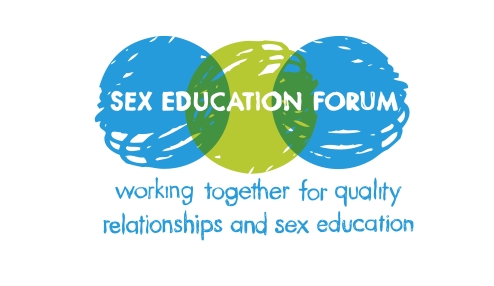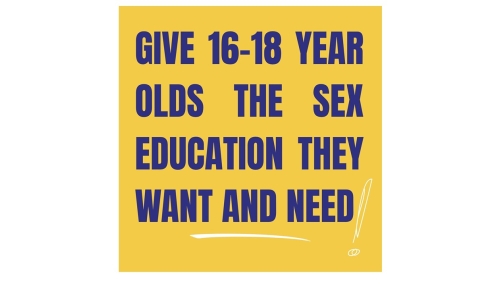The roll-out of a new Ofsted framework this September resets the compass on school inspection, and comes just 12 months ahead of new requirements for mandatory Relationships and Sex Education. As schools prepare for both changes, we look at how these two reforms align.
Changes to the law, and the new Government guidance on Relationships and Sex Education (RSE), Relationships Education and Health Education give this cluster of subjects the same status as other curriculum subjects. In the past there has been very wide variation in quantity and quality of RSE in schools, resulting in a complete lottery for learners. The new guidance on RSE spells out that governors and school management must ensure the subject is ‘resourced, staffed and timetabled in a way that ensures that the school can fulfil its legal obligation’.
Ofsted is an accountability mechanism, so has a critical role to play in monitoring what schools do and setting benchmarks for standards. However, the days of judging each curriculum subject individually have long gone. There is no separate grade for maths, history or science, and there will be no grade for RSE.
The new Ofsted framework is built on four key judgements: ‘quality of education’, ‘behaviour and attitudes’, ‘personal development’ and ‘leadership and management’. Taken together, with additional judgements for the early years and for 16-19 provision where appropriate, these form the basis of the overall grade for the school (either outstanding, good, requires improvement or inadequate). Inspections will now usually last two days, preceded by a 90 minute phone conversation with the Headteacher. The telephone conversation may be in two separate parts, as agreed between the headteacher and the inspector.
‘Quality of education’ is the key judgment most focused on the curriculum. Here, Ofsted set out their expectation that the curriculum will be ambitious and that learners must study the curriculum in full, with teachers having good knowledge of the subject(s) they teach. This is relevant to all subjects, including RSE.
When we surveyed 240 teachers of RSE in England we found that 29% had never had any training in RSE, and topics such as pregnancy choices and the harms of explicit online content were pinpointed as needing further knowledge and confidence to teach well.
A number of ‘deep dives’ are part of a new inspection methodology that will be used to gather evidence of the quality of education, and create ‘a collection of deep, connected case studies of subjects, topics or aspects’. At least two deep dives at primary level, one of which will be reading, and between four and six at secondary, mean there is scope in future for ‘deep dives’ focused on RSE or aspects of it, once it becomes statutory from September 2020. Discussion with pupils, teachers and leaders will inform each ‘deep dive’ along with scrutiny of pupils’ work and visits to a sample of lessons. However, as the teaching of good relationships in itself is nothing new, Ofsted will continue to look at how these are developed in schools as part of their normal inspection work.
Roary Pownall, Ofsted’s National Lead for PSHE and for Citizenship, wishes to reassure school leaders that they will recognise, and take note of, good provision for RSE wherever they find it. RSE will be relevant to the ‘quality of education’, but it is a key aspect of ‘personal development’, where the quality of RSE, Relationships Education and Health Education will be routinely included in future inspections. Here, Ofsted will be looking for evidence that the school ‘prepares learners for life in modern Britain’, and this specifically includes ‘developing pupils’ age-appropriate understanding of healthy relationships through appropriate relationship and sex education’ as one of the most significant dimensions.
Paragraphs 220 and 221 of the school inspection handbook reiterate the legal requirements on schools, and the impact on inspection if a school fails to meet its obligations:
‘220: From September 2019, schools are able to follow a new relationships and sex education and health education curriculum. From September 2020, they will be required by law to follow it. Primary-age children must be taught about positive relationships and respect for others, and how these are linked to promoting good mental health and well-being. In addition, sex education will become mandatory at secondary level.
221: If a school is failing to meet its obligations, inspectors will consider this when reaching the personal development judgement.’
‘Personal development’ incorporates several connected dimensions, and to make a judgement inspectors will draw on evidence from extra-curricular activities, the promotion of British Values, diversity and equality, careers information and, where appropriate, the quality of debate and discussion that pupils have.
This is separate to the key judgment on ‘behaviour and attitudes’ which looks in more depth at the extent to which leaders, teachers and learners create an environment where bullying, peer-on-peer abuse or discrimination are not tolerated. However, there is strong synergy between these areas of the inspection framework.
Schools will be inspected under the new framework from September 2019 but, as stated in paragraph 220, they will not be penalised if they choose to start following the updated guidance on RSE from 2020, rather than adopting it a year early.
At the same time, it is worth remembering again that inspecting RSE is nothing new. Ofsted has always been concerned that pupils understand what constitutes healthy relationships, feel safe and are prepared for adult life. When school doesn’t feel safe for children, and when children don’t have essential knowledge to recognise abusive behaviour and how to get help, inspectors have an important role in shining a spotlight on areas of concern.
Ofsted published a thematic report: ‘PSHE: not yet good enough’ in 2013. This found PSHE teaching to need improvement in 42% of primary and 38% of secondary schools sampled. In 20% of schools, staff had received little or no training to teach PSHE education, and ’Teaching was not good in any of these schools’. An update to this report would be extremely timely. It would support schools with useful practical insights, and would go hand in hand with Government commitment to continuously improve RSE.
Reforms making RSE, Relationships Education and Health Education mandatory coincide helpfully with the new Ofsted framework and secure status for the subjects and an accountability mechanism with the potential to fulfil the entitlement of all children and young people to good quality RSE that meets their needs.
Lucy Emmerson
23 September 2019
Book Countdown to Statutory RSE - North East on 26 March and you’ll get to hear from Ofsted’s, Roary Pownall the National Lead for Personal, Social and Health Education and Citizenship on ‘Not for us, not for you but your pupils – Intent, Implementation and the Impact of RSHE in schools.
References
Department for Education (2019) Statutory guidance: Relationships education, relationships and sex education (RSE) and health education
Ofsted (2019) Education Inspection Framework
Ofsted (2019) School inspection handbook
Ofsted (2013) PSHE: Not yet good enough
Sex Education forum (2018) Teachers survey report: ‘Statutory RSE – are teachers in England prepared’




Share